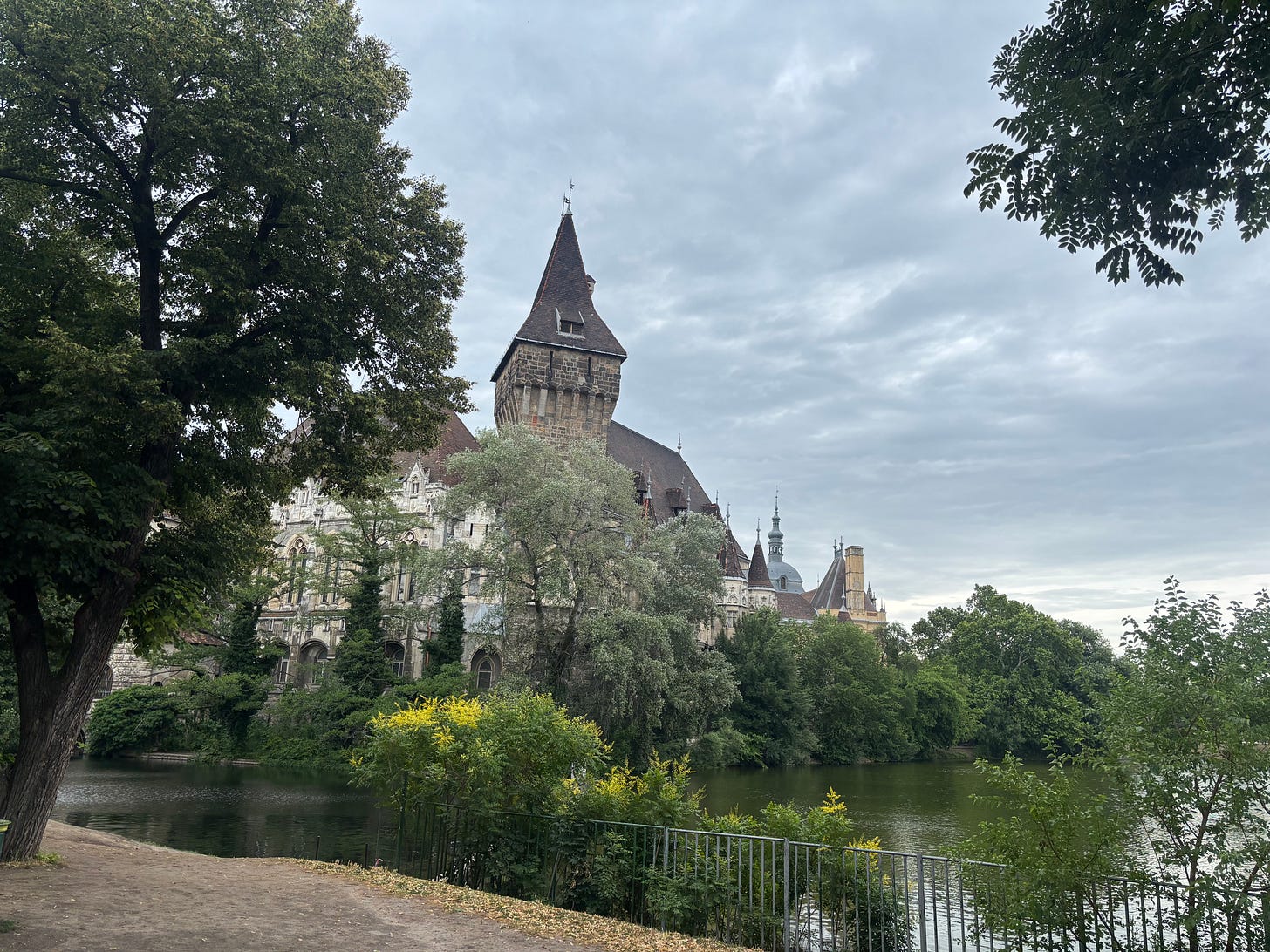Make Room for Sky!
Morning Thoughts #266
Oh humanity, see how you’ve aged! What cathedrals you once built, what stale high-rises are going up now! Once creating for the heavens, now stacking into self-contained heights.
In our individual lives, we too often cycle through stages, eras, of profound belief succeeded by ones of secular materialism. In the former, we tend to harbor fanatical, almost dogmatic hopes. Our inspiration capable of hitting the highest notes.
The Renaissance, for all that it was (a rediscovery of pre-Christian arts and thinkers), its greatest artists also tended to be deep believers in the religion of their day. Michelangelo’s (incredible, near superhuman) body of work is unthinkable without his profound belief in God, what else could have sustained his artistic will to the same degree?
The uncertain future towering above us when we’re young inspires a similar type of fearful reverence. We create our future out of desperate faith. The most sure believer still finds need of tearful, yearning prayer in times of extreme hardship and upheaval. Not that their faith is wavering, but living amidst a quaking world, how can even the most faithful not be expected to waver with it to some degree? Individual wavering, amidst a world doing the same, is actually a technique to keep balance. Like on a ship in rough seas, you shuffle your step, not to mirror the seas, but to balance the self. Keeping balance looks different in different situations.
In yeoman’s terms: I’m thinking about life, on an individual timeline. Not necessarily in a religious sense, but the beginning of adulthood can bring about the same combination of belief, hope, and also powerlessness before the towering future ahead. We create out of belief in an obscure immensity. In youth, the future itself seems to be everywhere, the great beyond. (And the young mind is always forward-thinking, so they can be excused for thinking the “ahead” is the everywhere, the universal.)
It looks like a kind of God to them, not graspable from their perch, but maybe reachable through creations, prayers, and works (whatever form these may take). Such grandiose possibilities are not subject to completely discernible rules. Mighty and random, overwhelming in its unreachable promise and beauty. Life as it lies before them, like a beautiful woman affecting a shy young man (as yet inexperienced). Sufficiently conceived, there’s no limit to our energy. We create for it. We offer to it a sacrifice of time, temples.
If this spirit reaches significant pitch, we find our own Michelangelo phase, in different form of course, but it plays out meaningfully personal to us.
The danger comes later, closer to middle age, when our hopes contract. This future becomes more observable, subject to routine perhaps in personal life. The limits of it now more defined. We can do this and that in life, but these other realms we have realized are not, and perhaps were never, reachable.
In a sense, the universe, our personal fate, becomes subject to scientific laws. Our fate has lost its frontiers. We see everything is determined. What once was sheer wonder, what planet we saw once and never knew if it would return to our skies, we have tracked the orbit. It affects us less. We have calculated what to expect, and when.
The future becomes a low sky, now forecasted. Our inspiration is in danger of drying up. What do we offer these great works to now? And what even inspires our energy for them?
What’s needed are periodic willful descents into some valley or another to reposition ourselves so the sky over our lives regains the wonders of its old (young) height. It’s not a matter of losing any actual elevation (don’t give away ground, hard-won by years of experience) but the taking in of a little more sky.

